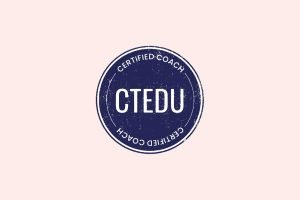A life coach, or personal coach, is someone who helps individuals like you make progress in your personal or professional life.
Think of them as a supportive partner who listens to your concerns, helps you figure out what you really want, and creates a plan for you to get there.
There are many different types of life coaches, including:
And more.
All of these coaches share the same goals: to offer motivation, help you stay focused, and provide the necessary tools and techniques to overcome obstacles.
Whether you’re looking to change careers, improve your relationships, or simply boost your self-esteem, a life coach can help you navigate the road to your full potential.
Table of Contents
History of Life Coaching
Life coaching has deep roots, beginning with ancient philosophers like Socrates, who used questioning to help individuals think critically and find their own answers.
The term “coach” was first used at Oxford University in the 1830s to describe tutors. And by the late 19th century, it was adopted in sports to describe trainers.
Then, in 1974, Timothy Gallwey’s The Inner Game of Tennis applied sports coaching principles to personal development. This paved the way for coaching beyond sports.
In the 1980s, Thomas Leonard, who many call the father of modern life coaching, began developing coaching techniques. This led him to establish Coach U in 1992 (the first formal coach training program) and the International Coach Federation (ICF) in 1994.
Since the 1990s, coaching has grown to include executive, health, and relationship. The internet and various social media have expanded the reach of coaching, allowing coaches to offer virtual sessions to a global audience.
Today, life coaching is a billion-dollar industry, with hundreds of thousands of coaches transforming the world one coaching session at a time.
What Makes a Life Coach Qualified to Coach Your Life?
First of all, a life coach doesn’t know you as well as you know yourself. What they can do is to ask you questions that can help you start thinking and coming up with your own solutions.
To do this effectively, they undergo specialized training programs. These programs teach them legitimate, research-backed coaching techniques, active listening skills, and ways to ask questions that inspire reflection and change.
Most of them also have a background in a related field, such as psychology, counseling, business, or personal development.
But just as you would in any profession, you’ll find varying levels of skill and effectiveness among life coaches. Some are excellent at what they do, some are good, and others could benefit from more education or perhaps should not be coaching at all.
Life Coach vs. Consultant vs. Therapist vs. a Friend
Here are the key differences between life coaches, therapists, mentors, and friends:
Life Coach
- Focuses on the present and the future
- Helps you set clear, achievable short and long-term goals
- Keeps you accountable for meeting your goals and timelines
- Uses questioning and active listening to help you find your own solutions
Therapist
- Focuses on the past, present, and future
- Explores deeper reasons behind your goals
- Addresses any mental health issues or past traumas that may impact your ability to reach your goals
Mentor
- Provides more specialized advice based on their own experience
- Gives you a detailed plan of what to do and the steps to take based on what worked for them
- Connects you with the necessary people, tools, and techniques
Friend
- Knows you the most
- Free and readily available but lacks professional experience
- May provide personal, biased opinion
What Does a Typical Life Coaching Session Look Like?
A typical life coaching session can vary depending on the coach, but here’s a general idea of what you might expect:
1. Initial Assessment
- Check-In: Discuss recent experiences, progress, and any challenges (since the last session).
- Setting the Agenda: Agree on what to focus on during the session.
2. Goal Setting
- Clarifying SMART Goals: Define what you want to achieve in the session and in the long term.
3. Exploration and Discussion
- Deep Dive: Explore the chosen topic in depth with probing questions.
- Identifying Obstacles: Find any barriers that might be holding you back.
4. Strategy Development
- Brainstorming Solutions: Come up with potential solutions and strategies.
- Action Planning: Create a clear plan with smaller, immediate tasks.
5. Commitment and Accountability
- Setting Tasks: Agree on specific actions to complete before the next session.
- Accountability: Ensure you stay committed and motivated.
6. Reflection and Feedback
- Reflection: Discuss what you’ve learned and how you feel about the session.
- Feedback: Receive encouragement and recognize progress.
7. Closing
- Recap: Summarize the key points and action steps.
- Next Steps: Plan what to achieve by the next session.

How Do You Know If You Need a Life Coach?
Here are some everyday signs that might indicate it’s a good idea:
- Feeling Stuck: If you feel like you’re not moving forward in your career, personal life, or relationships, a life coach can help you figure out what’s holding you back and how to move forward.
- Lack of Clarity: If you’re unsure about what you want in life or can’t seem to set clear goals, a life coach can help you gain clarity and set achievable objectives.
- Procrastination: If you often find yourself putting things off and struggling with productivity, a life coach can help you develop better habits and stay motivated.
- Stress and Overwhelm: If you’re constantly stressed and overwhelmed, a life coach can teach you helpful strategies to create a more balanced life.
- Desire for Personal Growth: If you’re looking to improve yourself, whether it’s building confidence, improving relationships, or developing new skills, a life coach can provide the guidance and support you need.
- Lack of Accountability: If you find it hard to stick to your plans and goals, a life coach can be that person who checks in on your progress and keeps you on track.
- Major Life Changes: If you’re going through significant changes like a career shift, a move, or a breakup, a life coach can help you navigate these transitions smoothly.
How to Choose the Right Life Coach
There are several questions you should ask a coach before hiring them. Here are some important ones:
- What’s your educational background and experience?
- Ideally, you want someone who has gone through or is going through courses from an ICF-certified school. ICF certification, along with experience, skill sets, and good references, is highly regarded, especially by large corporations and government organizations. Check out the best ICF-accredited coaching training.
- What is your coaching philosophy or approach?
- Every coach has a different style and approach to their practice. Understanding their philosophy helps you see if this approach aligns with your values and expectations or not.
- Do you have a specific field of focus?
- A coach’s area of focus can influence how they will interact with you, what lessons they will teach you, and what tools they will use to help you succeed.
- Do you combine coaching with consulting?
- This can be a red flag because, while both are useful, they are contrary practices and combining them poses ethical complications. (Refer to the ICF code of ethics for more information.)
- Do you follow the ICF code of ethics or any other coaching ethics, and if so, which ones?
How to Become a Life Coach
If you think you’re ready to become a certified professional life coach, here are some of the best life coach training programs you should consider:
- Transformation Academy – Best budget-friendly training.
- Coach Training Alliance – Best for building a coaching business and affordable ICF accreditation. Learn more.
- iPEC – Best advanced coaching program
- Life Coach Training Institute – Best for ICOES-accredited hybrid learning
And more in this article!
The Life Coach Magazine staff is your team for high-quality content on topics from personal development, to coaching tips, to how to grow your coaching business.










Be First to Comment